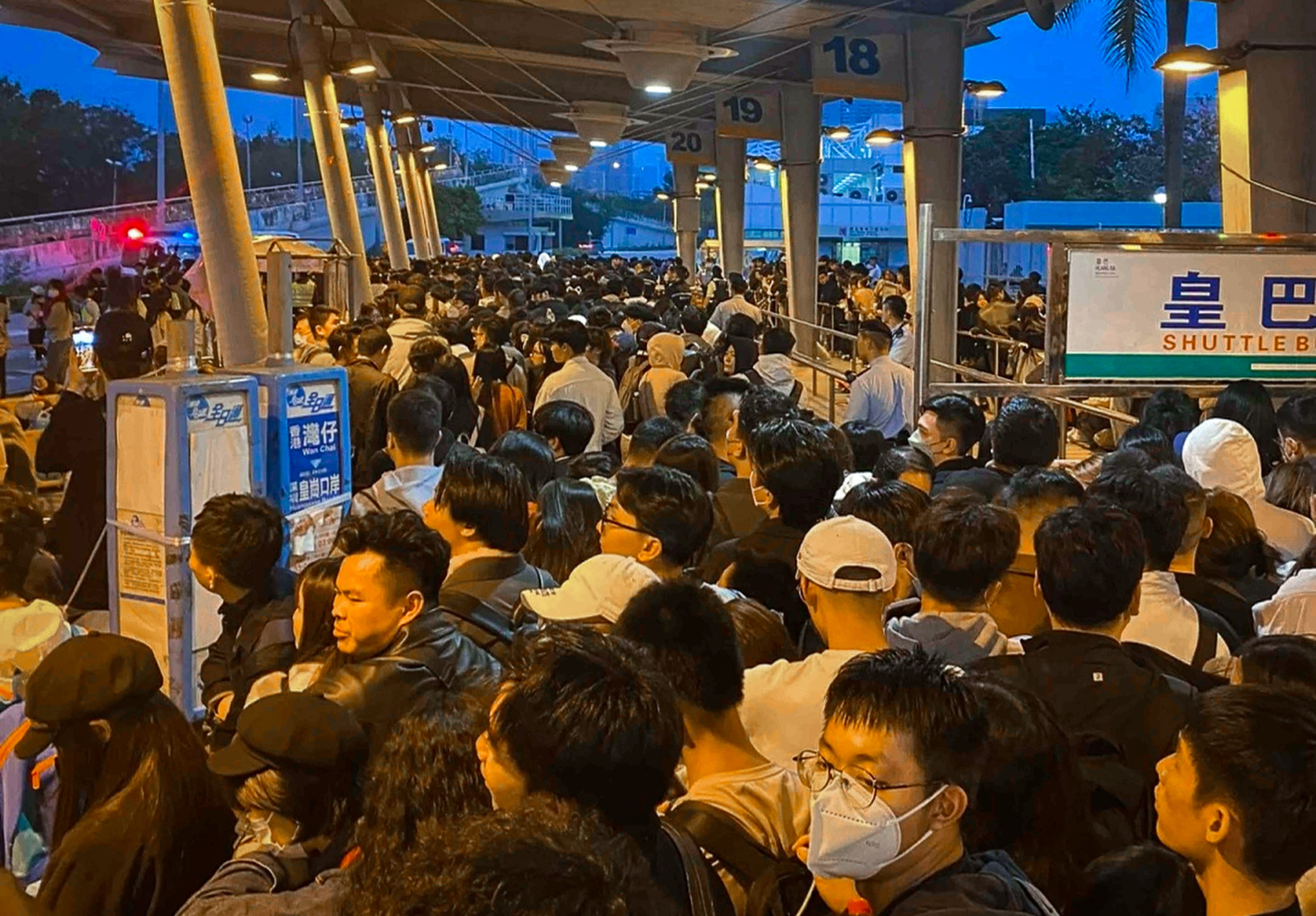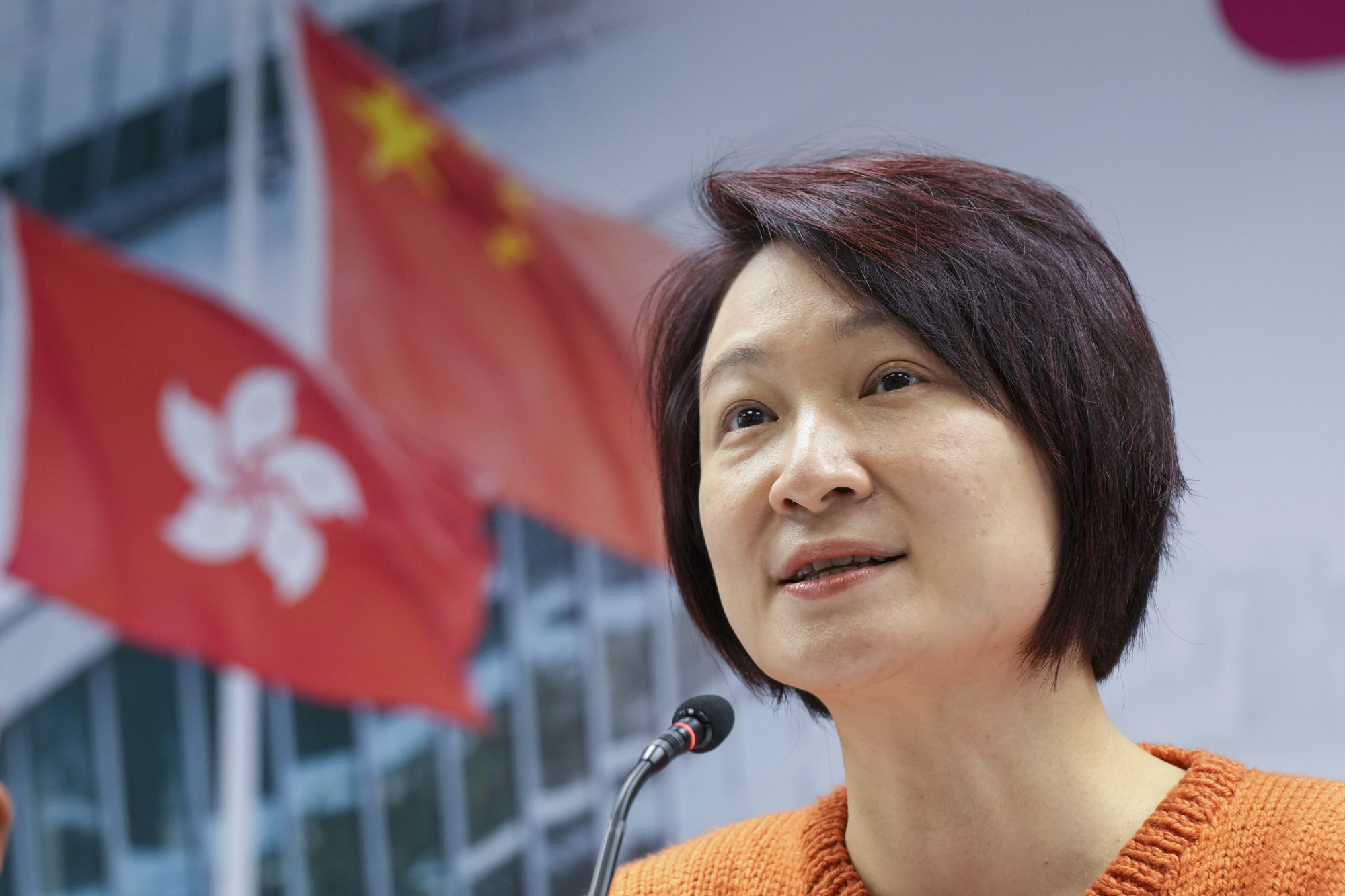
Hong Kong officials ‘learn lesson’ after new year transport chaos, come up with measures to avoid repeat during future mega events
- Government has identified key strategies to ensure smooth cross-border travel during big events in city
- Economist warns more convenient cross-border travel may prove counterproductive for Hong Kong’s economy
Hong Kong officials have “learned a lesson” and come up with measures to avoid a repeat of transport chaos that left thousands of cross-border visitors stranded at new year, including holding a high-level cross-departmental meeting ahead of all future mega events.
Chief Secretary Eric Chan Kwok-ki said on Tuesday that he would chair the meetings, among three key strategies to ensure smooth cross-border travel, along with holding discussions with mainland authorities on extending operating hours at checkpoints connected by railway services and increasing the number of 24-hour border crossings.
Chan, flanked by three ministers at a press briefing, said the cross-border stranding of thousands of northbound mainland Chinese visitors was a result of 227,000 tourists – a daily record for 2023 – flocking to the city on New Year’s Eve.

Among them, 26,000 chose to return to mainland China that night through the Lok Ma Chau control point, which caused the bottleneck, a lesson the government had learned, he said.
“After the fireworks [on Sunday night], there were too many people crossing the border to go home through the 24-hour Lok Ma Chau-Huanggang checkpoint, and many travelled by car, which led traffic jams to spill onto San Tin Road,” he said.
“We have come up with three ways to better coordinate transport ahead of future mega events.”
Asked about government measures for the coming Lunar New Year holidays, Secretary for Culture, Sports and Tourism Kevin Yeung Yun-hung said his bureau had learned a lesson and would strengthen cross-departmental collaboration.
“The Lunar New Year period will be a longer holiday, for which mainland visitors may stay overnight,” he said.
The “New Year, New Legend” fireworks display, which kicked off at midnight and lasted about 12 minutes, drew 479,000 revellers to both sides of Victoria Harbour, the Tourism Board said.
According to the Immigration Department, 195,888 mainland visitors entered the city on Sunday, accounting for 87 per cent of tourist arrivals.
Although most MTR rail lines operated for 24 hours for New Year’s Eve celebrations, services to the Lo Wu and Lok Ma Chau Spur Line border checkpoint stations were not available overnight. Crowds were forced to wait at Sheung Shui station for the first cross-border train on Monday morning.
Secretary for Security Chris Tang Ping-keung noted that 26,000 tourists using the Lok Ma Chau checkpoint from midnight to 6am on Monday was five times the number compared with a weekend in December.
Over the six-hour period, 1,570 vehicles headed to Shenzhen via the checkpoint – 90 per cent of which were private cars – three times more than any weekend in December.
Hundreds of Hongkongers tour newly opened border town on New Year’s Day
Tang said all 31 customs clearance channels were operating, resulting in a processing time of a maximum 30 minutes per person.
Earlier, transport authorities said they would consider introducing designated lanes for cross-border buses near checkpoints after operators complained that traffic congestion had hindered their efforts to clear the crowds.

Economist Simon Lee Siu-po said more convenient border crossings could prove counterproductive for the economy as Hong Kong needed more visitors to stay overnight and spend their money.
“When travel between the two places becomes more convenient, mainland tourists from Guangdong may choose to make same-day trips back and forth due to the high cost of accommodation in Hong Kong,” said Lee, an honorary fellow at the Asia-Pacific Institute of Business at Chinese University.
“Those outside Guangdong may also opt for Shenzhen as a transit point.”
He said he suspected mainland travellers would stay in Hong Kong for a shorter period and spend the rest of their trips in Shenzhen where hotels and food were more affordable.
Lau Siu-kai, a consultant at semi-official Beijing think tank the Chinese Association of Hong Kong and Macau Studies, said boosting the movement of people between the two sides was inevitable as part of the nation’s development.
“It is hard to determine the impact of more convenient cross-border travel on Hong Kong, but it’s crucial for the city to enhance its competitiveness and attract overnight visitors,” Lau said.
Starry Lee Wai-king, Hong Kong’s sole delegate to the nation’s top legislative body, expressed confidence the city would be able to extend the opening hours of more control points for the Lunar New Year holiday.
“When there are large-scale activities, it is obvious that the clearance capacity of the control points is insufficient,” Lee, a member of the National People’s Congress Standing Committee, told a radio programme on Tuesday.
“We have proposed it previously and now is actually the right time to extend the hours of railway checkpoints during holidays and gradually increase the 24-hour customs clearance arrangements at control points.”
Lee urged the government to extend 24-hour customs clearance to more crossings such as Liantang-Heung Yuen Wai and Shenzhen Bay.
Hong Kong security chief to review packed border crossings after festive fireworks
Authorities should also further simplify arrangements by taking reference from Macau, which conducted a single customs clearance for travellers with their mainland counterparts, she added.

Ken Wong Pak-kin, principal transport officer of the Transport Department, said the number of tourists heading across the border right after the fireworks had exceeded expectations.
He said the department would review how to improve arrangements at checkpoints to make the operation of cross-border buses smoother, including designating lanes for them. He also called on operators to step up publicity to better inform mainland tourists of the city’s transport arrangements.
Sparks must fly after thousands stranded in Hong Kong
Freeman Cheung Kim-ping, secretary of the Hong Kong Guangdong Boundary Crossing Bus Association, said that despite service frequencies being strengthened, the congestion on roads and crossings by the presence of too many private cars had affected operations. Buses ran every five to 10 minutes on New Year’s Eve, more frequently than the usual 15 to 20 minutes, he said.
Cheung also urged authorities to have designated lanes for cross-border buses at control points.



